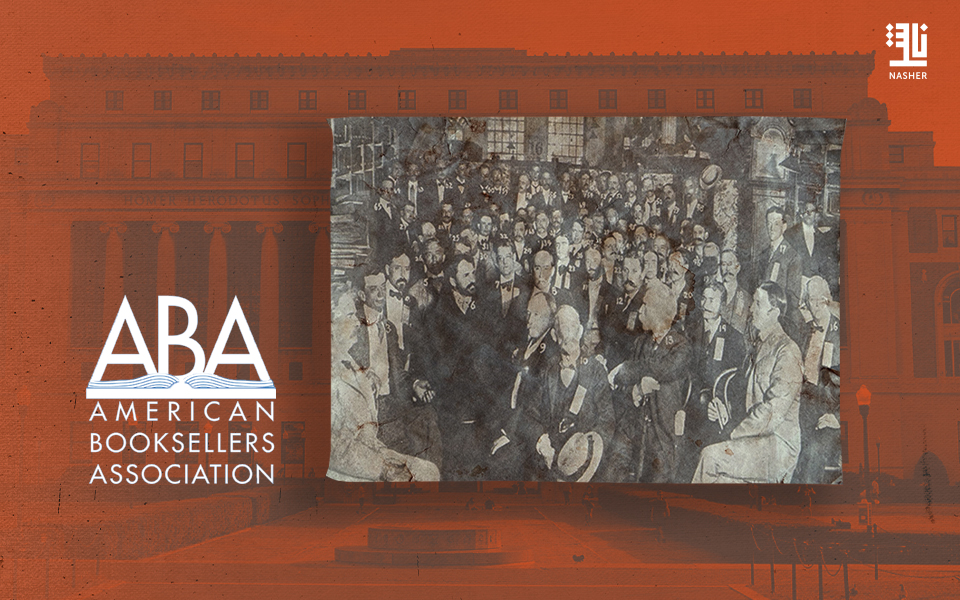Among the many fascinating pictures, documents and bookselling memorabilia held by the American Booksellers Association (ABA) is this photograph of Mark Twain, taken in 1902 when he was 67. It is part of the ABA’s archive which is in the process of being handed over to Columbia University’s Rare Book & Manuscript Library, part of the Columbia University Libraries system.
The picture is fascinating for two reasons, one comic, the other political. The comic reason is the fact that virtually everyone has a moustache; the political is covered by the question ‘where are the women?’
The photograph came to light thanks to the diligent work of former US bookseller Lenora Jennings, who is now a sales rep for Princeton University Press and Yale University Press. Jennings is writing a book on the history of independent bookselling in the US and discovered the picture at the ABA’s offices in White Plains New York.
When she heard that the ABA was going remote and was closing its offices, she put word out and Columbia University Rare Book & Manuscript Library stepped forward.
ABA CEO Allison Hill said: “Columbia has a stellar global reputation as an academic research library and a demonstrated commitment to connecting researchers with history. ABA is proud to make this contribution to Columbia’s Archives and its vital work recognizing the value of the book industry and preserving the rich history of independent bookstores. This important partnership will make ABA’s bookselling history accessible to our members for the first time and we hope that these materials contribute to ongoing academic and professional research about books, publishing, and bookselling.”
Speaking about her book, Jennings says: “Our bookseller ancestors have passed down through the generations a set of values, customs, and practices that define bookselling today. Social scientists define this as a culture. This is a culture that challenges authority, questions, and expands its political and cultural viewpoints, is open to change, and explores new ways to create community. I don’t know precisely what our future looks like, but if our past informs our future, bookselling will continue to be an institution that cultivates a community of values that can act as an underpinning for a better world.”
She told Shelf Awareness: “The ABA Archive will eventually be available to the public to explore. Now that the ABA and Columbia have a connection, any new materials that contribute to this story can be added to the collection in perpetuity. The ABA celebrates its 125th anniversary next year. Someday 125 years from now, a curious bookseller will be able to see everything we are doing today to connect books, readers, and their own communities.
“They will know that they are a part of a long tradition of people who believed in the power of books to act as a cultural and political expression, to create community, and connect us all to something bigger than ourselves.
“With the encouragement of the ABA, I am launching the Bookseller Oral History Project at Winter Institute in Cincinnati. Intended to collect the experiences, insights, and perspectives of current and former booksellers, the recording and interviews will preserve the voices of booksellers so that someday that same future bookseller can hear our story from the primary source.”
Twain himself would surely praise the initiative.







